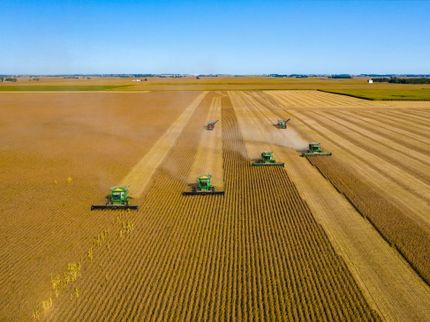Introduce due diligence obligations for genetically engineered products
Advertisement
Products that are produced using new genetic engineering methods, such as genome editing, are in some cases challenging for traceability. However, this challenge can be met effectively with appropriately adapted EU regulations. In a recent study, the Öko-Institut and the Austrian Federal Environment Agency investigated which approaches would be useful and how they could be implemented.

Symbol image
computer generated picture
One challenge with methods of new genetic engineering (NGT) is that some NGT products cannot be clearly identified as such by analytical methods. Based on other products whose marketing is regulated in the EU and whose regulatory properties are also not analytically detectable, such as conflict minerals, the project team has reviewed various legal requirements. Such laws require companies to exercise due diligence in their supply chains and thus reverse the burden of proof. This method can be applied to products in the agricultural and food industry. A corresponding due diligence regulation could extend to all products that have been developed using new genetic engineering methods.
Tracing products in order to fulfill due diligence obligations
Due diligence regulations can legally oblige companies to take responsibility for certain risks in their supply chains. For example, they must prove through reporting that they are fulfilling their obligations to protect human and environmental rights, among other things. The regional origin of imported products may also be mandatory. These traceability systems can also be applied to genetically modified products (GMOs). Companies that import agricultural raw materials must then endeavor to identify the risks of unauthorized GMOs (including GMO products) in their supply chain and, if necessary, take measures to reduce them. It should be possible to trace the ingredients of a product back through the entire supply chain to agricultural production or even to the origin of the seed. Traceability is therefore a means of minimizing the risk of contamination with GMOs and a prerequisite for fulfilling the duty of care.
The additional work involved in further reporting can be challenging for companies. "Our practical exercise using a fictitious company that trades in GMO-free products has shown that companies that sell certified GMO-free products already fulfill many elements of a potential due diligence regulation. The additional effort should therefore be minimal," explains Dr. Jenny Teufel, project manager at the Öko-Institut. In addition, companies in the food industry already have to provide relevant information about their supply chains for certain raw materials, for example as a result of the new regulation for deforestation-free products.
Expanding existing databases to identify risks more easily
In order to assess risks in the supply chain, a range of information on genetically modified products is again required, such as a regularly updated overview of the most important countries exporting plant products to the EU and available for genetically modified varieties worldwide. Preferably, this data would be made available in an international database that also contains automatically retrievable sequence information on the genetically modified organisms. "This information would enable importers of agricultural products to carry out the necessary non-analytical risk assessments," says Teufel.
Note: This article has been translated using a computer system without human intervention. LUMITOS offers these automatic translations to present a wider range of current news. Since this article has been translated with automatic translation, it is possible that it contains errors in vocabulary, syntax or grammar. The original article in German can be found here.



























































